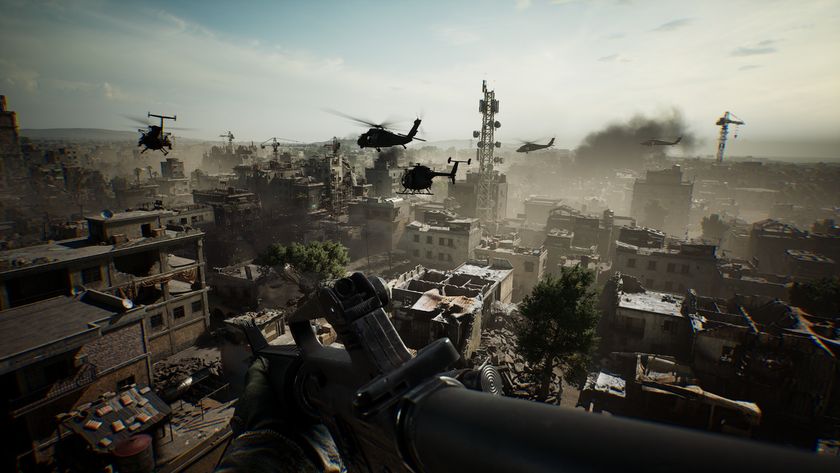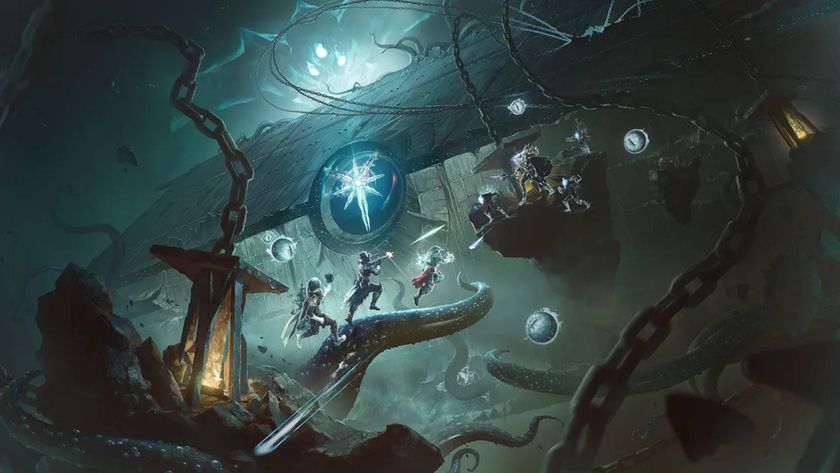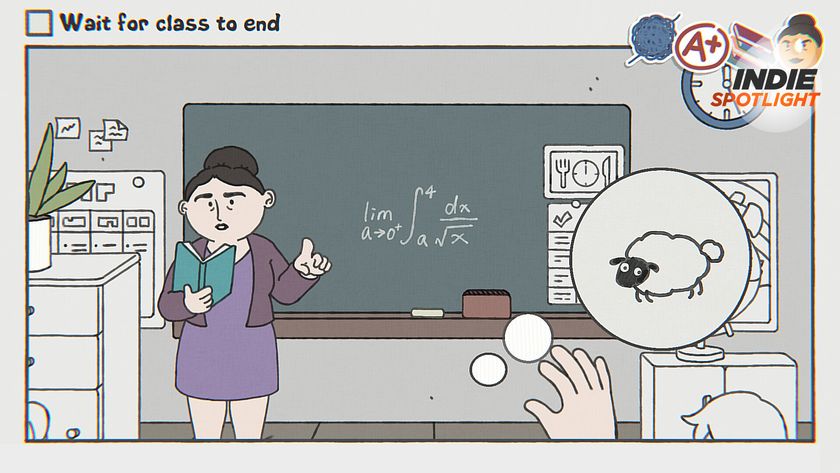Redfall proves it's time to press pause on tired squad-based shooters
Opinion | Are squad shooters still connecting with players?
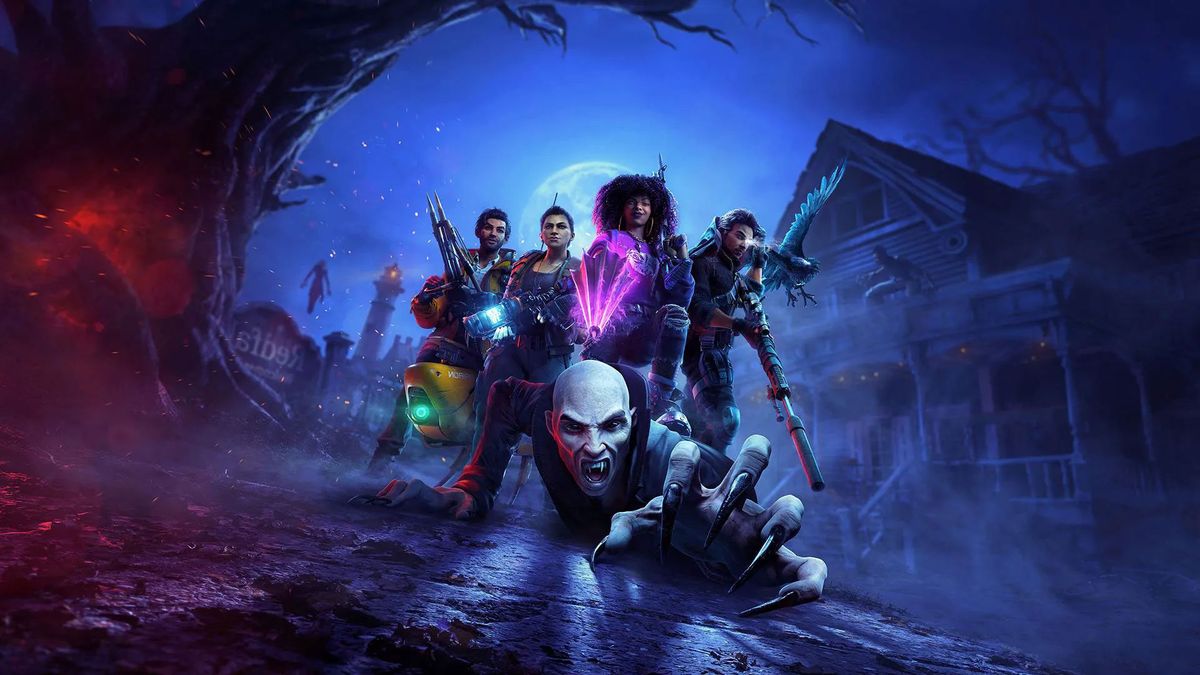
Our Redfall review describes Arkane's latest offering as one that feels rushed, unfinished and unsatisfying. To quote 12DOVE's own Sam Loveridge directly: "not even awesome vampires and world design can redeem Redfall's repetitive gameplay, which becomes progressively more monotonous the longer you play."
Let's break that sentence in half. For me, the first part speaks to Arkane's impressive back catalog. My mind goes straight to games like Dishonored and its sequel, Prey, and Deathloop, each one of which is brimming with creativity, ingenuity and innovation. Here, the characters are memorable, and the worlds that encompass them are unforgettable. The second part of that sentence, on the other hand, speaks to a wider, unfortunate habit in video games that seems more prevalent now than ever: chasing trends.
Redfall, frustratingly, is a squad-based shooter. That's not to say I have a problem with the genre – I've played my fair share of Rainbow Six: Siege over the years, and one of my most anticipated upcoming games at the moment is Embark Studios' The Finals – but, really, Arkane's fingerprints shouldn't be anywhere near a game of this nature. Arkane's expertise lies in everything noted above; in conjuring dark and twisted fantasy lands with unreliable narrators, cool magical powers, and page-turning narratives. Although appearing to have sold pretty well in its opening stretch, Redfall instead looks set to become the studio's most forgettable outing against a tidal wave of genre familiars.
And so if squad-based shooters aren't connecting with players, the most obvious question is: why are there still so many?
Guess work
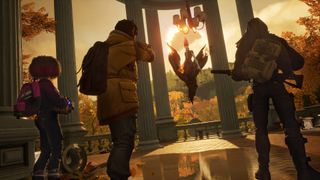

Suicide Squad's lacklustre reveal is a symptom of a widespread disease in AAA
Thinking cynically… it's money, right? If a game's selling, even against expectations, then critical acclaim and forum discourse matter less than they otherwise might. I'm not a game developer, but I don't think it's a stretch to suggest some companies see squad-based shooters as low-resource money generators; games that are compared against the best-in-class (CS:GO, R6: Siege, Overwatch 2 et al) which can, in theory, be pulled together with minimal effort, and hopefully produce a bit of cash. To this end, I reckon Rainbow Six: Extraction fits that description.
Launched in January, 2022, I liked Extraction for what it is: a solid shooter held back by its source material. It's a comfortable seven-out-of-ten tactical team-based affair that riffs on Siege's core ideas to a fault. As a spin-off to one of Siege's themed limited-time events years prior, it lacks the scope, scale, and ambition of said source material, which makes reports of empty lobbies and extended matchmaking waiting times today, just over a year after release, totally believable. Building squad-based shooters may well require less in the way of resources, but making a good one coming from this angle is, clearly, hardly a cakewalk.
You'd only need to look at the slew of faceless squad-based shooters that have come and gone in recent times, such as Evolve, Back 4 Blood, Elite: Dangerous Arena, Lawbreakers, Battleborn, and Amazon's Crucible – the latter of which spent six years in development, became available to download on May 20, 2020, returned to closed beta a few weeks later on June 30, and then announced it was closing its doors indefinitely on October 9 just a few months later again. Elsewhere, when I was first shown Battlefield 2042's squad-based Hazard Zone in October, 2021, I questioned whether it was right for Battlefield as a series and franchise. Seven months later, EA announced it was winding down the so-called "third pillar" of Battlefield 2042, which I guess answers that one.
Sign up to the 12DOVE Newsletter
Weekly digests, tales from the communities you love, and more
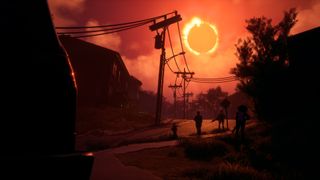
"Admittedly, I feel for Arkane in this instance, mostly because I don't believe it's received the proper universal recognition for the masterful work it's created over the last decade or so".
Back to Redfall, and our review says this of how quickly things become formulaic: "You know what's involved in each mission regardless of the narrative wrapper it might have. There are always going to be vampires to be staked, something to be blown up, keys to be found, or items to be collected – it's just a case of which version of the mission structure it'll be. There are two or three really good missions that add some complexity to the structure, and some cool details involving the headline vampires, but whether enough players will get through the dredge to get to them will be an interesting test."
That, as I'm sure anyone who's played them can attest, ain't an Arkane game – at least not as we otherwise know them. Admittedly, I feel for Arkane in this instance, mostly because I don't believe it's received the proper universal recognition for the masterful work it's created over the last decade or so. Redfall's missteps feel like an even bigger shame as a result, and, actually, my next concern is for Rocksteady's Suicide Squad: Kill the Justice League. Once a game that topped my most-anticipated upcoming games list, recent gameplay footage showcased yet another bland and uninspired squad shooter. Like Arkane, Rocksteady's previous work has showcased the very best of video games – but I now worry the studio is on the cusp of becoming the next victim of everything mentioned above.
Listen, I don't want to be all doom and gloom. Perhaps Redfall will dig itself out of the hole it's in right now with decent post-launch support. Maybe Suicide Squad: Kill the Justice League will surprise me, and turn out more impressive in motion than what we've seen so far. But in order for any of this to happen, I'm also certain we need way less in the way of tired squad-based shooters in 2023 and beyond, and we need to let the experts excel in their areas of expertise.
Here are the best FPS games you can play right now

Joe Donnelly is a sports editor from Glasgow and former features editor at 12DOVE. A mental health advocate, Joe has written about video games and mental health for The Guardian, New Statesman, VICE, PC Gamer and many more, and believes the interactive nature of video games makes them uniquely placed to educate and inform. His book Checkpoint considers the complex intersections of video games and mental health, and was shortlisted for Scotland's National Book of the Year for non-fiction in 2021. As familiar with the streets of Los Santos as he is the west of Scotland, Joe can often be found living his best and worst lives in GTA Online and its PC role-playing scene.
Most Popular





